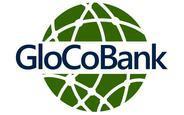BOLSA, the Eurocurrency markets, and the financing of Japanese industry in the 1960s
Simon Mollan, University of York; Ayumu Sugawara, Tohoku University; Mark Billings, University of Exeter
The emergence of the Eurocurrency markets is recognised as the single most important financial innovation in the post-war period.[1] The combination of financial innovation, minimal regulation, and rapid growth, has been associated with the revival of the City of London as a financial centre, and the beginning of financial globalization and the process of financialization.[2] Eurocurrency markets were particularly suited to international business finance because of their origins in international transactions, and also that the markets were highly liquid.[3] What is less well understood, however, is how banks in the Eurocurrency markets used finance for their corporate clients, or how these financial services were integrated into the architecture of international finance. Though these aspects are known in general, details of the financial functions are not generally explicated.[4] For example, though is known that Japanese banks used the Eurocurrency markets to obtain finance for Japanese industry, what the Japanese banks did with the credit they raised is not known. [5] The principal contribution of this paper is therefore to explore how Japanese banks accessed the Euromarkets with reference to the financing of Japanese industry in the 1960s, with a particular focus on short term loans and trade finance for industrial exports to Latin America. The archival records used to explore these are those of the Bank London and South America (BOLSA) held in Lloyds Bank Archive in London. BOLSA acted for Japanese banks and industrial firms in obtaining credit in the London Eurodollar market. BOLSA’s connections to Latin America were important with reference to the trade finance aspect of Eurodollar borrowing. The paper is structured as followed. The first section contextualises the development of the Eurocurrency markets and BOLSA’s role as a participant. The second section discusses BOLSA’s strategy in the 1950s and 1960s. The third section discusses the reasons why Japanese firms sought access to the Eurocurrency markets. And the fourth section discusses the financial services that BOLSA provided to their clients, including discussion of the role of correspondent banks. This is based on a dataset we have constructed that covers all commercial loans and trade finance facilities issued by BOLSA to Japanese banks and industrial firms between 1964 and 1971. This reveals the scale and nature of Eurodollar transactions with reference to Japan in this period.
[1] Gianni Toniolo and Piet Clement, Central Bank Cooperation at the Bank for International Settlements, 1930-1973 (Cambridge: Cambridge University Press, 2005), 452; Paul Einzig, The History of Foreign Exchange (London: Macmillan, 1962), 2–3; Stefano Battilossi, “The Eurodollar Revolution in Financial Technology . Deregulation , Innovation and Structural Change in Western Banking in the 1960s and 1970s,” Working Papers in Economic History, Working Papers in Economic History (Universidad Carlos III de Madrid, 2009), 5; Catherine R. Schenk, “The Origins of the Eurodollar Market in London: 1955–1963,” Explorations in Economic History 35, no. 2 (1998): 221.
[2] Eric Helleiner, “Editorial: The World of Money: The Political Economy of International Capital Mobility,” Policy Sciences 27, no. 4 (1994): 295–98; Burn, “The State, the City and the Euromarkets”; Edoardo Altamura, “A New Dawn for European Banking: The Euromarket, the Oil Crisis and the Rise of International Banking,” Zeitschrift Für Unternehmensgeschichte 60, no. 1 (2015): 29–51; Simon Mollan and Ranald Michie, “The City of London as an International Commercial and Financial Center since 1900,” Enterprise and Society 13, no. 3 (January 27, 2012): 538–87; John Singleton, “The Euromarkets and the New Zealand Government in the 1960S,” Australian Economic History Review 49, no. 3 (2009): 252–75; Schenk, “The Origins of the Eurodollar Market in London: 1955–1963.”
[3] Singleton, “The Euromarkets and the New Zealand Government in the 1960S,” 225; Battilossi, “The Eurodollar Revolution in Financial Technology . Deregulation , Innovation and Structural Change in Western Banking in the 1960s and 1970s,” 48; 11–12.
[4] M. Boldt-Christmas, S. F. Jacobsen, and A. E. Tschoegl, “The International Expansion of the Norwegian Banks,” Business History 43, no. 3 (2001): 82.
[5] Schenk, “The Origins of the Eurodollar Market in London: 1955–1963,” 231.
Simon Mollan is a Reader at the University of York. He is a business/management historian by training, and undertakes research across disciplinary boundaries. His research interests include international development, international management and organizational strategy, financialisation and the social studies of finance, imperialism, organisational modelling and complexity, business/management history, international business theory, and research methods. Simon is the Chair of the Management History Research Group (UK), a trustee of the Economic and Business History Society (USA), a member of the Association of Business Historians (UK), and the Economic History Society (UK) and is also a member of the Management and Organization History Research Cluster at TYMS.
Mark Billings retired in 2020 as Senior Lecturer in Accounting and Business History, University of Exeter Business School, UK. He is a member of the Editorial Board of Business History and was Joint Editor of Essays in Economic and Business History from 2018-2024. He has published on a variety of accounting, banking, business, and financial history topics in history journals such as Accounting History Review, Business History, Enterprise and Society, European Review of Economic History, and Financial History Review, and in accounting journals such as Abacus and Accounting and Business Research, and book chapters in edited volumes. He has been a member of the Institute of Chartered Accountants in England and Wales since 1985 and worked in the City of London and business before becoming an academic.



